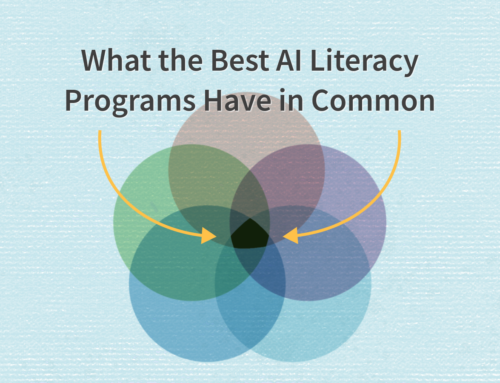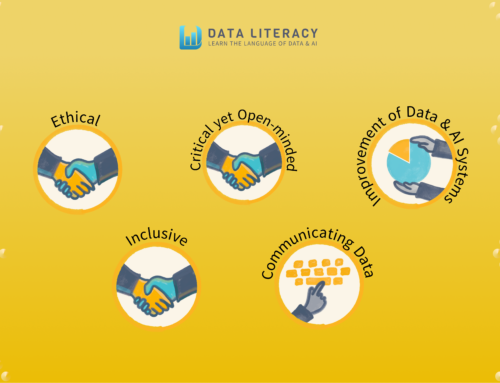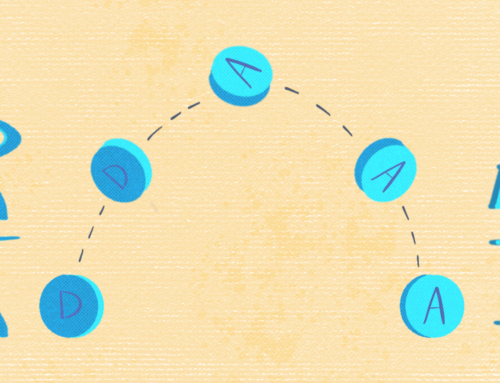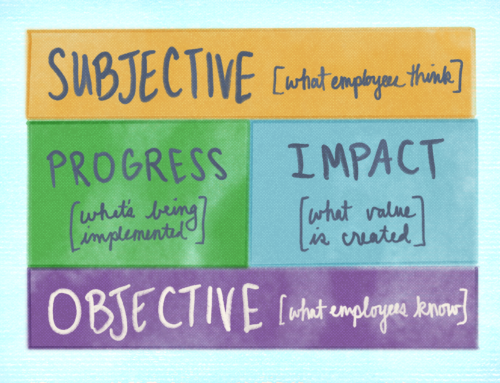6 Must-Have Skills to Thrive as a Data Analyst in 2025
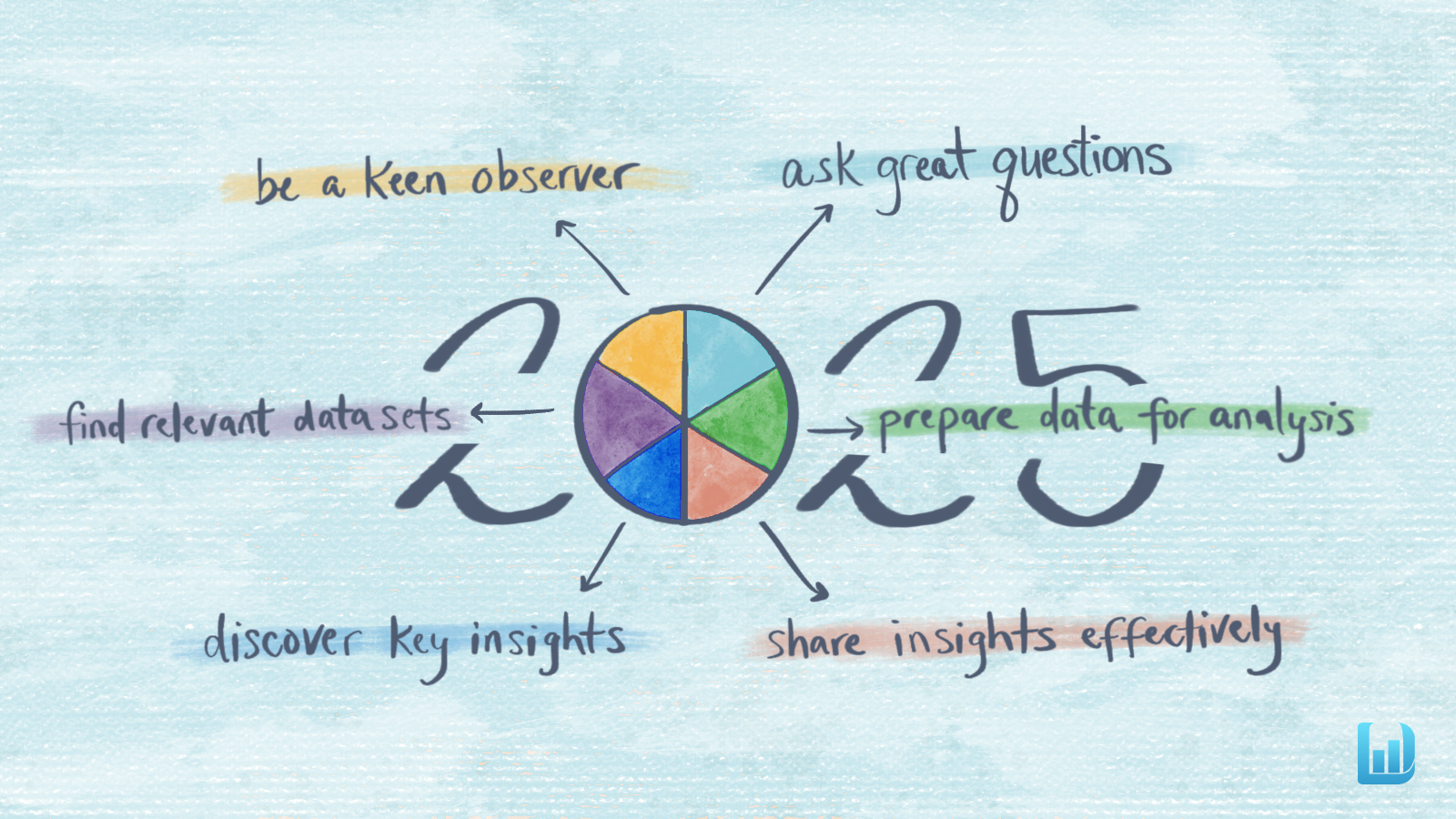
The following article first appeared in Forbes Business Council on December 27, 2024.
In a world increasingly focused on data and AI, the role of the data analyst has become essential. Organizations of all types and sizes desperately need employees who can explore their data and find ways to put it to good use.
What separates great data analysts from the rest, then? It’s not what you might think. Job applicants and hiring managers often focus on technical skills or proficiency with data-working tools, but that’s not the key differentiator.
That’s not to say tools don’t matter – today’s data analyst absolutely needs to be able to use at least a few of the most common tools, such as Excel, SQL, Tableau, Power BI, R, or Python. Such “hard skills” are necessary to be a great analyst, but they aren’t sufficient. Something more is needed.
In my experience, true excellence in data analysis is rooted in a set of traits that enable professionals to uncover insights and drive business decisions. Here’s a look at six key traits that define a great data analyst:
1. Being a Keen Observer
Let’s begin almost two thousand years ago, shall we? In Meditations, the classic manual of Stoicism written by 2nd century Roman emperor Marcus Aurelius, we find the following gem about the value of being observant:
“Nothing has such power to broaden the mind as the ability to investigate systematically and truly all that comes under thy observation in life.”
Great data analysts possess a sharp eye for detail, both in the numbers and in the nuances of the business. They notice patterns, anomalies, and trends that others overlook. But observation doesn’t stop at the data—it extends to understanding how the business operates and identifying opportunities where analysis can add value.
Why it matters: A keen observer can connect the dots between what’s happening in the business and what the data says, ensuring that analysis is always actionable.
2. Asking Great Questions
American quality guru W. Edwards Deming once said, “If you do not know how to ask the right question, you discover nothing.” A great data analyst asks probing questions of both the data and the business, ensuring they’re solving the right problems. These questions often challenge assumptions and uncover blind spots.
You might assume that the best outcome of data exploration is that you get an answer to a question that you had at the start. While that may be true in some cases, every great data analyst knows a powerful secret – that the best outcome might not be an answer, but rather a brand new question to ask.
Why it matters: By asking the right questions, analysts ensure their work aligns with business needs and delivers meaningful insights.
3. Finding (or Creating) Relevant Data Sets
The unfortunate truth is that data availability is a significant challenge in many situations. Based on five years of organizational maturity assessments conducted by Data Literacy across global organizations, ‘Difficulty finding & accessing data’ consistently emerges as the primary barrier to effective data utilization, cited by over 40% of respondents from a comprehensive list of seventeen potential obstacles.
Because of this common challenge, great data analysts excel at locating the right data sources, and getting access to them. They know where to look and how to fill gaps when data is incomplete. If a relevant data set simply doesn’t exist, they don’t just give up, they find a way to create what’s needed themselves.
Why it matters: Without relevant and sufficient data, analysis can lead to misleading conclusions. Resourceful analysts ensure no stone is left unturned.
4. Preparing Data for Analysis
Once they get their hands on data, a great data analyst knows to first explore its contours before diving in and using it to answer questions. Data profiling isn’t optional, because it almost always leads to the discovery of shortcomings and blemishes of various types in the data.
What comes next? Cleaning and preparing data might not be glamorous, but it’s essential. Great analysts know how to roll up the sleeves and handle messy data, transforming it into a format ready for meaningful analysis. They embrace this step, understanding its critical role in the process.
Why it matters: Prepared data reduces errors and ensures the analysis is both accurate and credible.
5. Discovering Key Insights
Now comes the fun part: the data analyst is like a prospector who has earned the right to enter a valuable mine. As they enter, they begin chipping away at the walls, and eventually they find a gem hidden inside its walls.
The process of data discovery requires a combination of technical skills, business acumen, and inquisitiveness. The great data analyst knows how to focus on the areas of highest potential, and they know how to work quickly and effectively. They cut through the noise, identifying the metrics and patterns that matter most to stakeholders.
Why it matters: Timely insights can drive immediate action, while overly complex analysis risks becoming irrelevant.
6. Sharing Insights Effectively
Discovering insights isn’t the end of the journey, though – communicating them effectively might make or break the entire endeavor. Even the most rigorous analysis loses value if poorly presented. Great analysts excel at transforming complex findings into compelling stories, using thoughtful visualization and clear narratives to engage their audience. They bridge the gap between technical analysis and business understanding by avoiding jargon and focusing on delivering clear, actionable insights.
Why it matters: Effective communication ensures that insights are understood, accepted, and acted upon by decision-makers.
Becoming a Great Data Analyst
These six traits, then, are the difference between good data analysts and great ones. And while they don’t come easy, they’re all very learnable. A top notch data literacy training program will address them. Beyond training, aspiring analysts can develop these skills with application and with practice.
Doing so will empower them to contribute to their organizations in meaningful ways. At its core, being a great data analyst means being observant, curious, resourceful, and focused on creating value.


